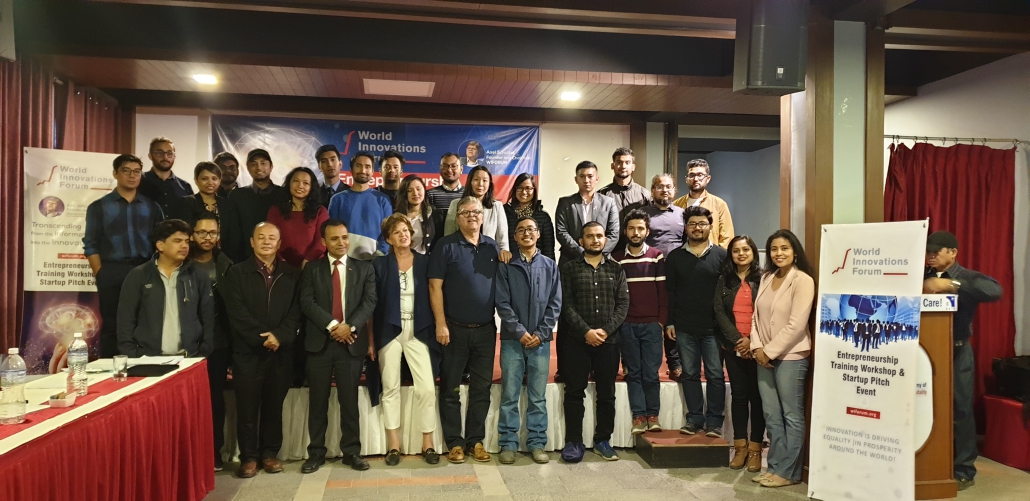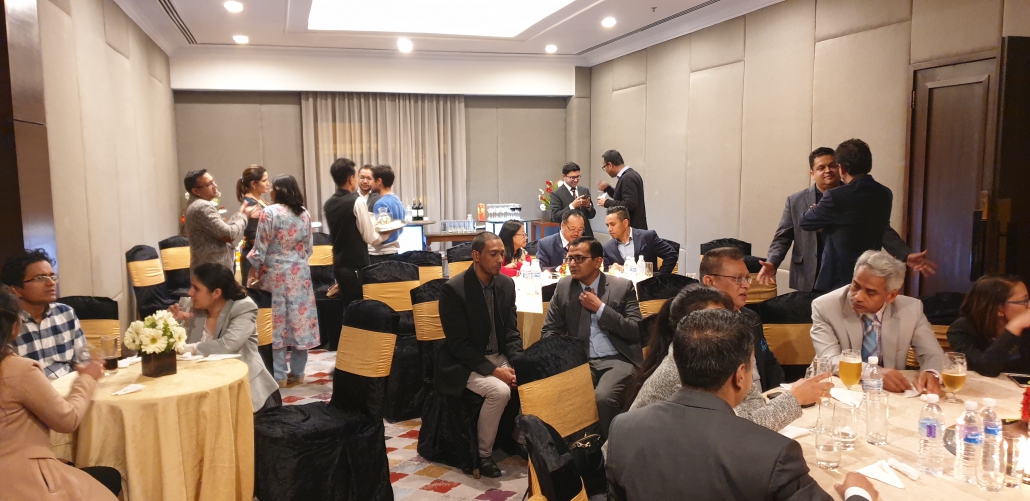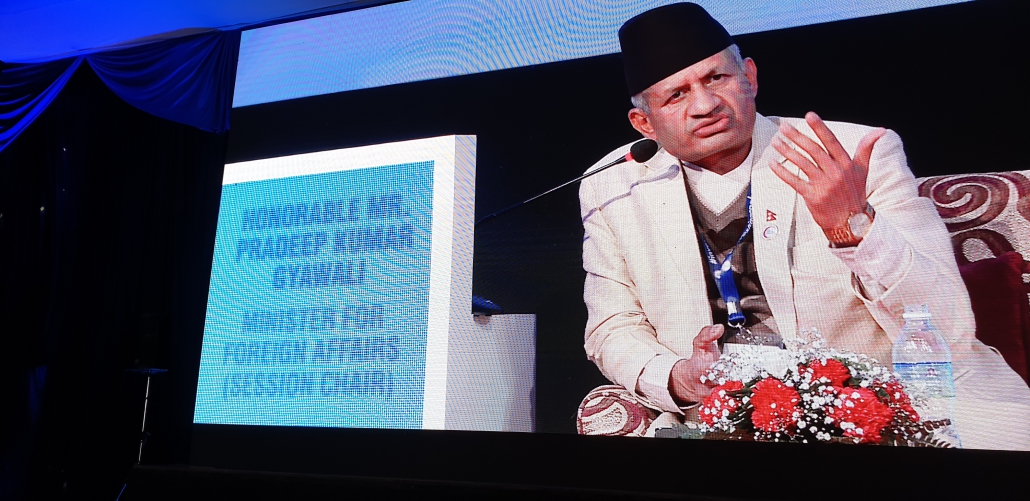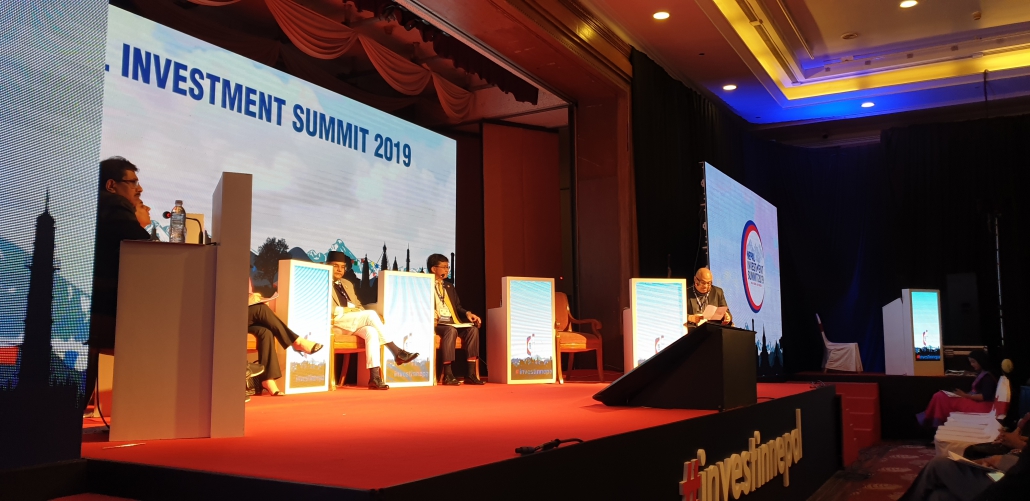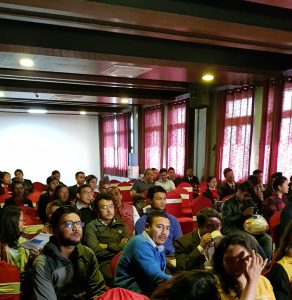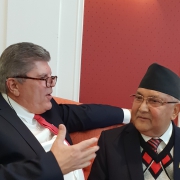ASIA TOUR FALL 2019 HIGHLIGHTS
Mid-December, we returned from our third 2-month long work to Asia. This time we started our activities Phnom Phen and later on ran our very first Accelerator (Flight 8) in Ho Chi Minh City in Vietnam. At the end of the trip, we spend time at the Tech Fest in Halon Bay in the north of Vietnam.
START IN CAMBODIA
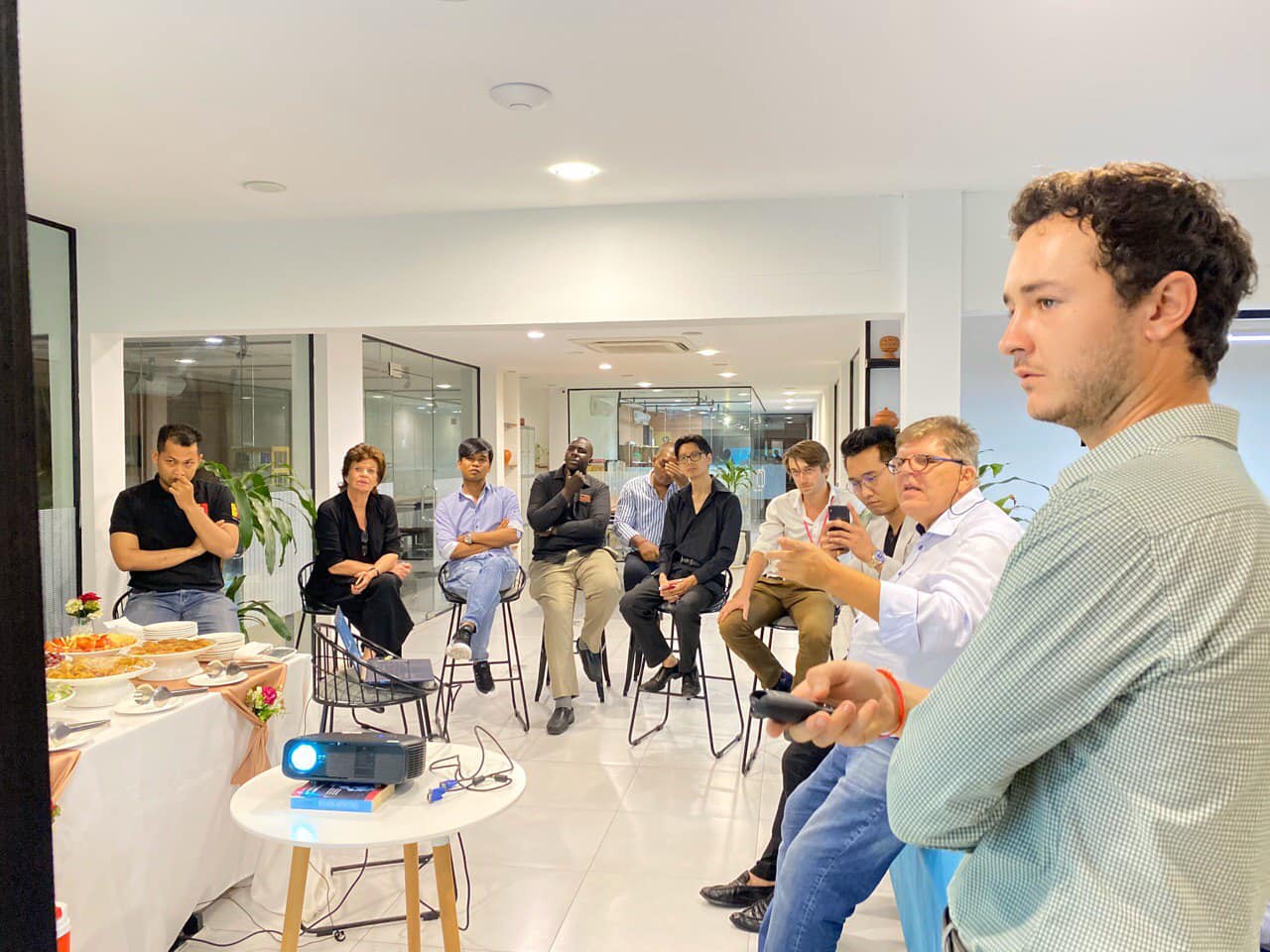 What a fast emerging nation. After the typical get to know each other and what our plans are, we have been very welcomed. At our entrepreneurs night at THE DESK in Phnom Penh, we met three amazing teams with very creative ideas. One is building a business that focuses entirely on e-commerce returns and its entire logistical challenges for any e-commerce operation that is not as powerful as Amazon. Another team, also in the e-commerce business, found a way to build a hybrid for small shops with no digital affinity to slowly emerge into the digital world by offering a scalable model from no digital to fully digital. And a third company is bold enough to actually stand up to Amazon and Alibaba by building an e-commerce platform with already over 100,000 products, mainly from China, at a purchase price level of the likes of Amazon. Bun, the founder, had already built a successful startup in Phnom Penh and had an exit with which he started his new company. All three joined the Accelerator program in Vietnam 3 weeks later. The event at THE DESK, who thankfully hosted the World Innovations Forum, had a significant impact on us and the ecosystem in Cambodia.
What a fast emerging nation. After the typical get to know each other and what our plans are, we have been very welcomed. At our entrepreneurs night at THE DESK in Phnom Penh, we met three amazing teams with very creative ideas. One is building a business that focuses entirely on e-commerce returns and its entire logistical challenges for any e-commerce operation that is not as powerful as Amazon. Another team, also in the e-commerce business, found a way to build a hybrid for small shops with no digital affinity to slowly emerge into the digital world by offering a scalable model from no digital to fully digital. And a third company is bold enough to actually stand up to Amazon and Alibaba by building an e-commerce platform with already over 100,000 products, mainly from China, at a purchase price level of the likes of Amazon. Bun, the founder, had already built a successful startup in Phnom Penh and had an exit with which he started his new company. All three joined the Accelerator program in Vietnam 3 weeks later. The event at THE DESK, who thankfully hosted the World Innovations Forum, had a significant impact on us and the ecosystem in Cambodia.
FRIENDSHIPS IN VIETNAM
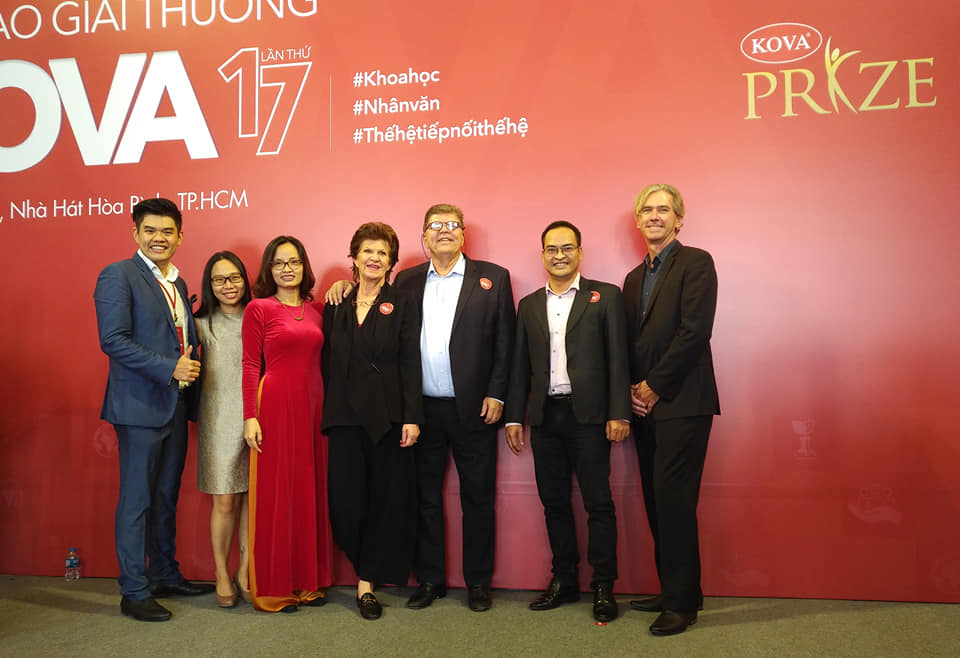 Our first visit to Vietnam was at a charity event from an already old friend from previous visits. His family is helping disadvantaged people, mostly women who are helping others. A very inspiring event with very moving examples of their work. It also shows that Vietnam is on its fast rise upwards where people make a lot of money but probably sooner than in other societies give back to those in need. In general, it was a great start meeting with all the people we met before. Since we are not a stiff and programmatic organization but people that love to work with people, friendships come more naturally. We believe it is what is needed to create impact rather than the impact on a report for donors.
Our first visit to Vietnam was at a charity event from an already old friend from previous visits. His family is helping disadvantaged people, mostly women who are helping others. A very inspiring event with very moving examples of their work. It also shows that Vietnam is on its fast rise upwards where people make a lot of money but probably sooner than in other societies give back to those in need. In general, it was a great start meeting with all the people we met before. Since we are not a stiff and programmatic organization but people that love to work with people, friendships come more naturally. We believe it is what is needed to create impact rather than the impact on a report for donors.
Another old friend from the other side of the planet surprised me in Vietnam, Bill Reichert from Silicon Valley’s iconic Venture Capital firm, Garage Ventures. Yes, it’s a small world :) We found each other at the podium of the opening ceremony of the TechFest.
ACCELERATOR FLIGHT 8
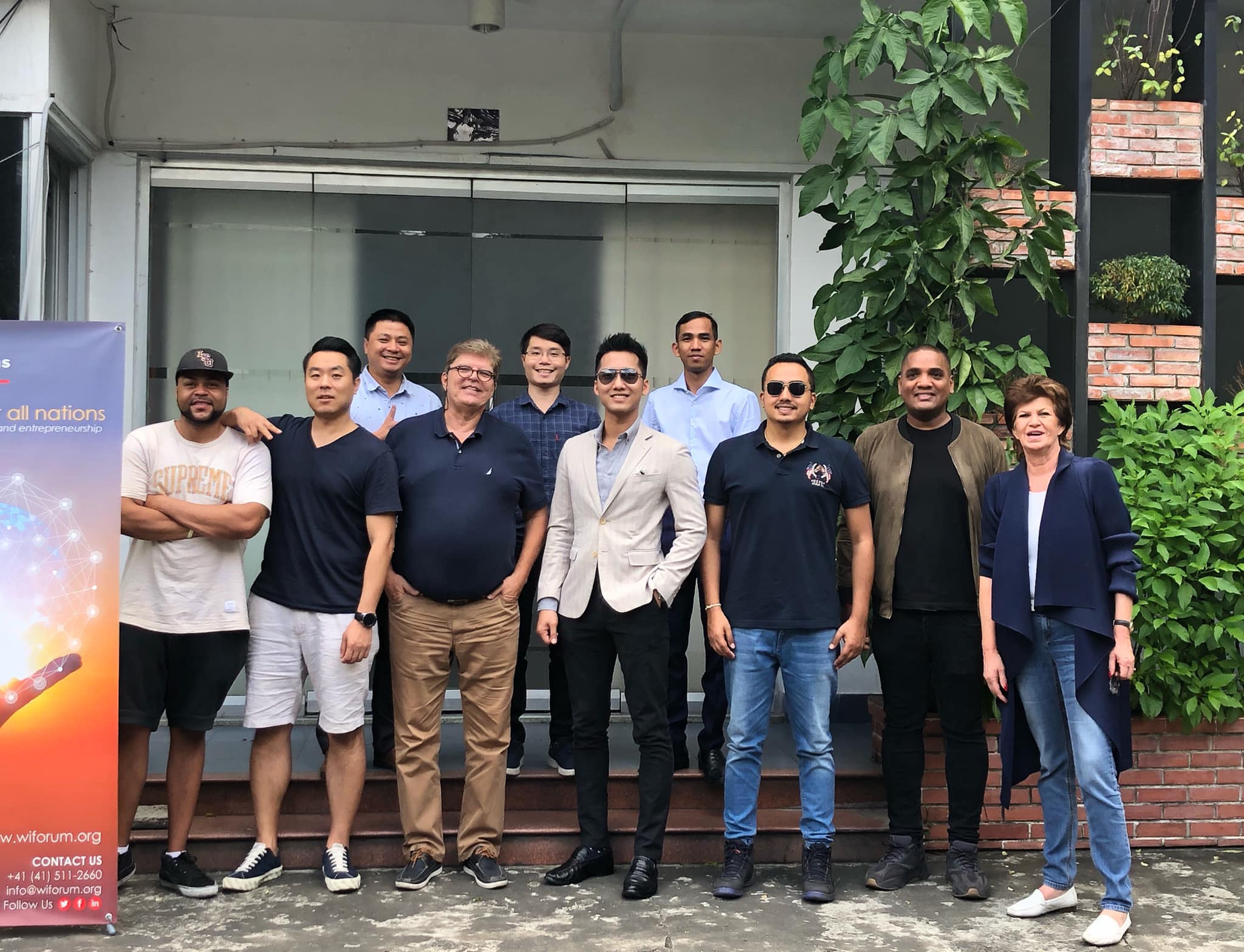 Our first seven accelerator flights have been before our work in emerging countries and were attended mostly by entrepreneurs from developed countries. The only exception was Flight 4, which was a spontaneous “Refugee Accelerator.” There we tried to help entrepreneurial refugees from Syria and Afghanistan to start their own business in Berlin, Germany, and instead of seeking jobs creating jobs. The result was four companies created, and two years later, 36 jobs created plus one going back and now helping entrepreneurs in Afghanistan to start their own business.
Our first seven accelerator flights have been before our work in emerging countries and were attended mostly by entrepreneurs from developed countries. The only exception was Flight 4, which was a spontaneous “Refugee Accelerator.” There we tried to help entrepreneurial refugees from Syria and Afghanistan to start their own business in Berlin, Germany, and instead of seeking jobs creating jobs. The result was four companies created, and two years later, 36 jobs created plus one going back and now helping entrepreneurs in Afghanistan to start their own business.
But Flight 8 is different. We have teams from Nepal, Cambodia, Vietnam, and South Korea. After the first day when the ice has broken the teams ramped up very quickly. Initially not sure if it would be a good idea to grow a large business, all have been inspired to become a business owner that creates jobs and contributes to the economy. The idea of disruption and standing out of the crowd is very diverse to the various cultures in Asia. The Asian culture is very inclusive; we are all one; nobody is extraordinary. But understanding that the CEO must not be the superhero above all heroes and stand out of the crowd, but the products they introduce together with their teams must stand out helped understand the subtle difference between people and the action or product. While I write this post, the program is still going on but now as an online collaboration with video conferences. Not only it helps doing this remotely – most importantly, it helps to collaborate in the digital space truly — something the West still has to learn.
PARTNERSHIP WITH ICM AND SONCHAN
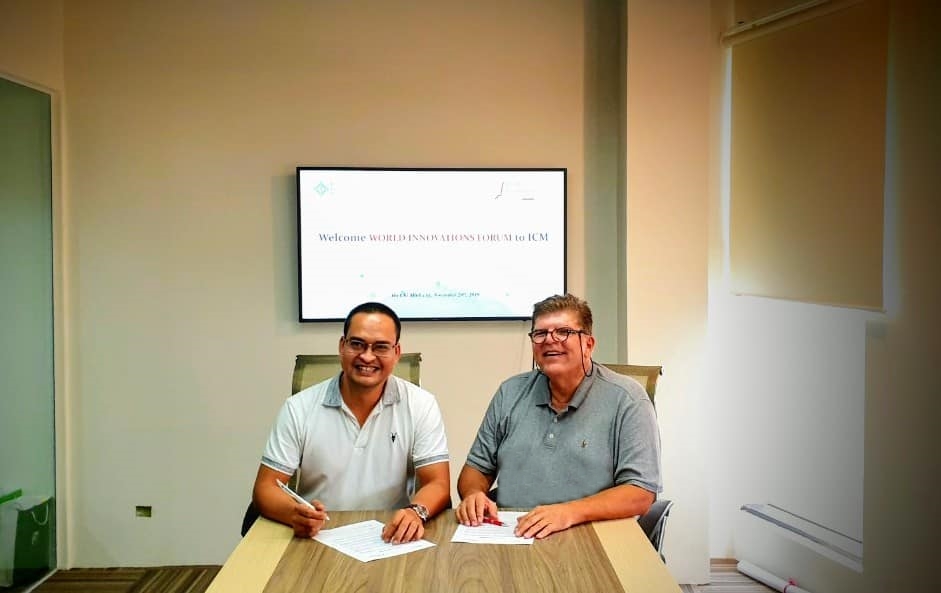 A new and very strategic partnership was formed with the Innovation Capital Management group that joined our global WIForum Innovation Capital Network. It’s the first investors’ group we have on board. The common ground is to make investments into startups in emerging countries much more accessible and to attract foreign investors by offering standardized stock purchase agreements in the English language with a notarized translation into the local language. The ICN project is still in the making but will be rolled out globally in 2020. Local investor groups from the countries we work in, such as Angel groups or venture capital firms, can join and collaborate on a framework that allows cross country investments, as long as the respective Foreign Direct Investment (FDI) policy for private equity exits ts in the respective country.
A new and very strategic partnership was formed with the Innovation Capital Management group that joined our global WIForum Innovation Capital Network. It’s the first investors’ group we have on board. The common ground is to make investments into startups in emerging countries much more accessible and to attract foreign investors by offering standardized stock purchase agreements in the English language with a notarized translation into the local language. The ICN project is still in the making but will be rolled out globally in 2020. Local investor groups from the countries we work in, such as Angel groups or venture capital firms, can join and collaborate on a framework that allows cross country investments, as long as the respective Foreign Direct Investment (FDI) policy for private equity exits ts in the respective country.
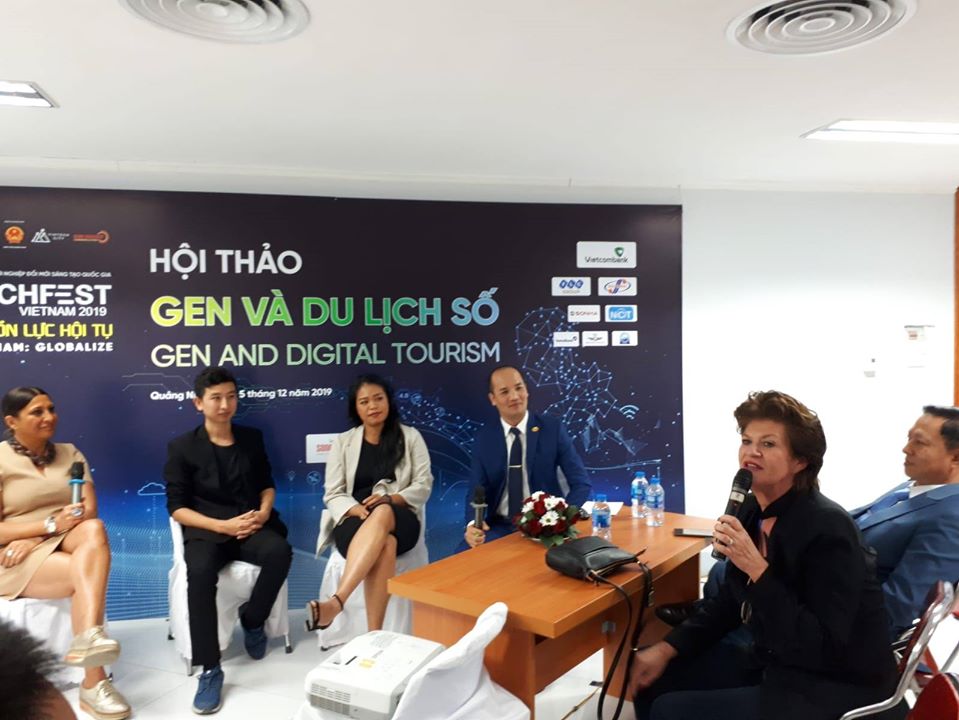 Another important partnership signed Marita with the SunChan Incubator with multiple locations in Vietnam. The idea is to help the organization adapt our new Innopreneurs Academy Program, an accelerator framework that allows the partners to work with a full-blown business model through a much-extended program, including corporate innovators and mid-market businesses. The signing happened during the TechFest in Halong Bay.
Another important partnership signed Marita with the SunChan Incubator with multiple locations in Vietnam. The idea is to help the organization adapt our new Innopreneurs Academy Program, an accelerator framework that allows the partners to work with a full-blown business model through a much-extended program, including corporate innovators and mid-market businesses. The signing happened during the TechFest in Halong Bay.
TECH FEST 2019
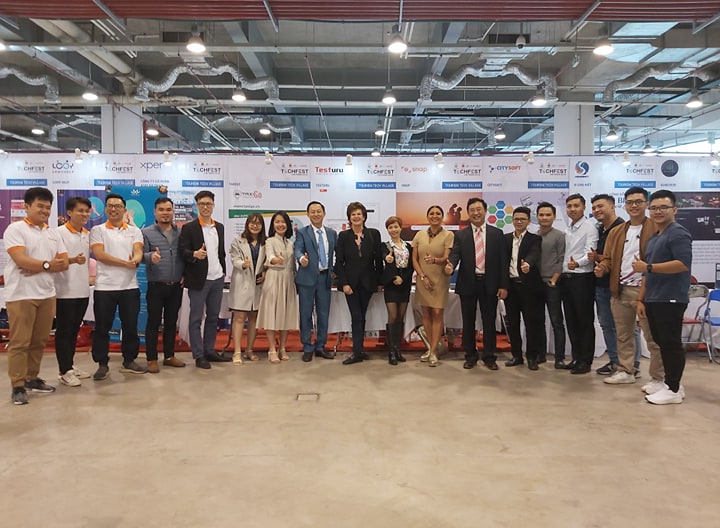 At the end of our stay, we visited a fantastic TechFest 2019 in the beautiful Halong Bay in northern Vietnam. We performed several workshops, gave keynotes, and conducted lots of meetings.
At the end of our stay, we visited a fantastic TechFest 2019 in the beautiful Halong Bay in northern Vietnam. We performed several workshops, gave keynotes, and conducted lots of meetings.
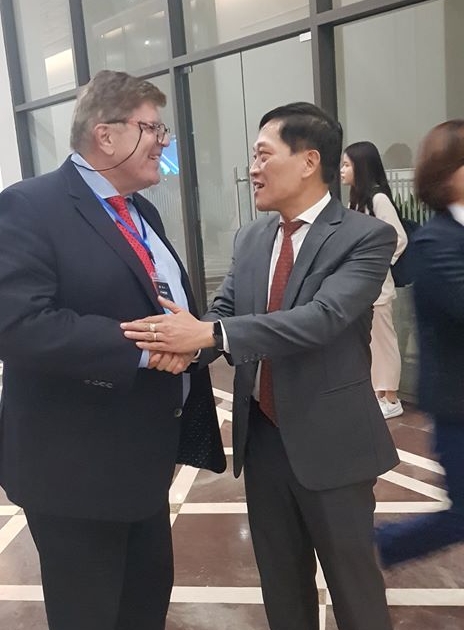 It was a pleasure and honor to meet the Minister for Science and Technology, Tran Van Tung, during the event and together on one of the podium discussions. You feel the ambition and energy of the country all the way to the top political ranks, very different than most other Southeast Asian countries. You literally feel the energy in Vietnam.
It was a pleasure and honor to meet the Minister for Science and Technology, Tran Van Tung, during the event and together on one of the podium discussions. You feel the ambition and energy of the country all the way to the top political ranks, very different than most other Southeast Asian countries. You literally feel the energy in Vietnam.
Approximately 8,000 people attended the four-day event, and approximately 1,000 invited guests enjoyed a fantastic show at the opening ceremony. About 300 startups exhibited their products that ranged from helpful mobile apps to highly sophisticated, artificial intelligence-based, business applications. The event was very professionally organized and demonstrated the power of Vietnam to be the next big name in Asia.
GOING FORWARD
In 2020 we are launching our “Seeding Innovation” initiative and get very focused on identifying entrepreneurs’ talents that have the credentials to develop highly innovative solutions and disruptive business models. With the Innovations Paradigm Model and the methodical approach to “Innovative Thinking,” “Innovation Design Process,” and “Innovation to Market Model,” we believe we can help South East Asian countries to get to genuinely groundbreaking innovations. That helps propel their respective nations to autonomous developed countries and significant contributors to a global prosperity effort, eradicating poverty.

